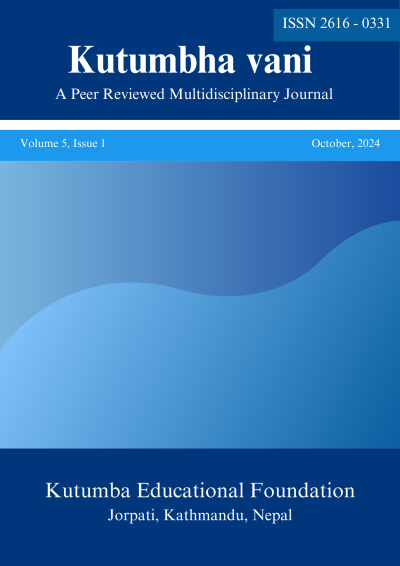Community Engagement in Local Governance
DOI:
https://doi.org/10.3126/kv.v5i1.70888Keywords:
community, disadvantaged, governance, marginalization, mobilizationAbstract
Community engagement in local governance is crucial for effective and inclusive decision-making. Lack of Awareness and Information has been found that limited knowledge can have its community members may not fully understand the governance processes or their rights and responsibilities. Information gaps have been found that the insufficient information about local issues and decision-making processes can hinder meaningful participation. Low Participation Rates have been found that apathy and disinterest is that some community members may be disengaged due to a lack of trust in the system or a perception that their participation will not make a difference. Barriers to access has been found that the physical, economic, or social barriers may prevent certain groups from participating, such as the elderly, disabled, or economically disadvantaged.
During the initial phase (2008-2013) of the Local Governance and Community Development Program (LGCDP) in Nepal, social mobilization emerged as one of its most effective components. Approximately 1 million citizens actively influenced local government decisions, leading many local bodies to develop annual plans that more accurately addressed the needs of citizens, particularly marginalized and disadvantaged groups. However, there remain several lessons to be learned in addressing the challenges of implementation. It is crucial to harmonize local social mobilization efforts and enhance the quality and support of social mobilization initiatives across Nepal. Addressing the challenges of community engagement in local governance involves a multifaceted approach that includes enhancing communication, building capacity, fostering inclusivity, and ensuring accountability. Public education campaigns have been found to Conduct outreach programs to educate community members about their rights, governance processes, and how they can participate. Workshops and training have been identified to offer workshops and training sessions to increase understanding of local governance and decision-making procedures. Diverse engagement channels have to utilize multiple platforms for engagement, including town hall meetings, online forums, surveys, and community events, to reach a broader audience. Inclusive scheduling has to schedule meetings and events at times that are convenient for different community groups, including evenings and weekends.




